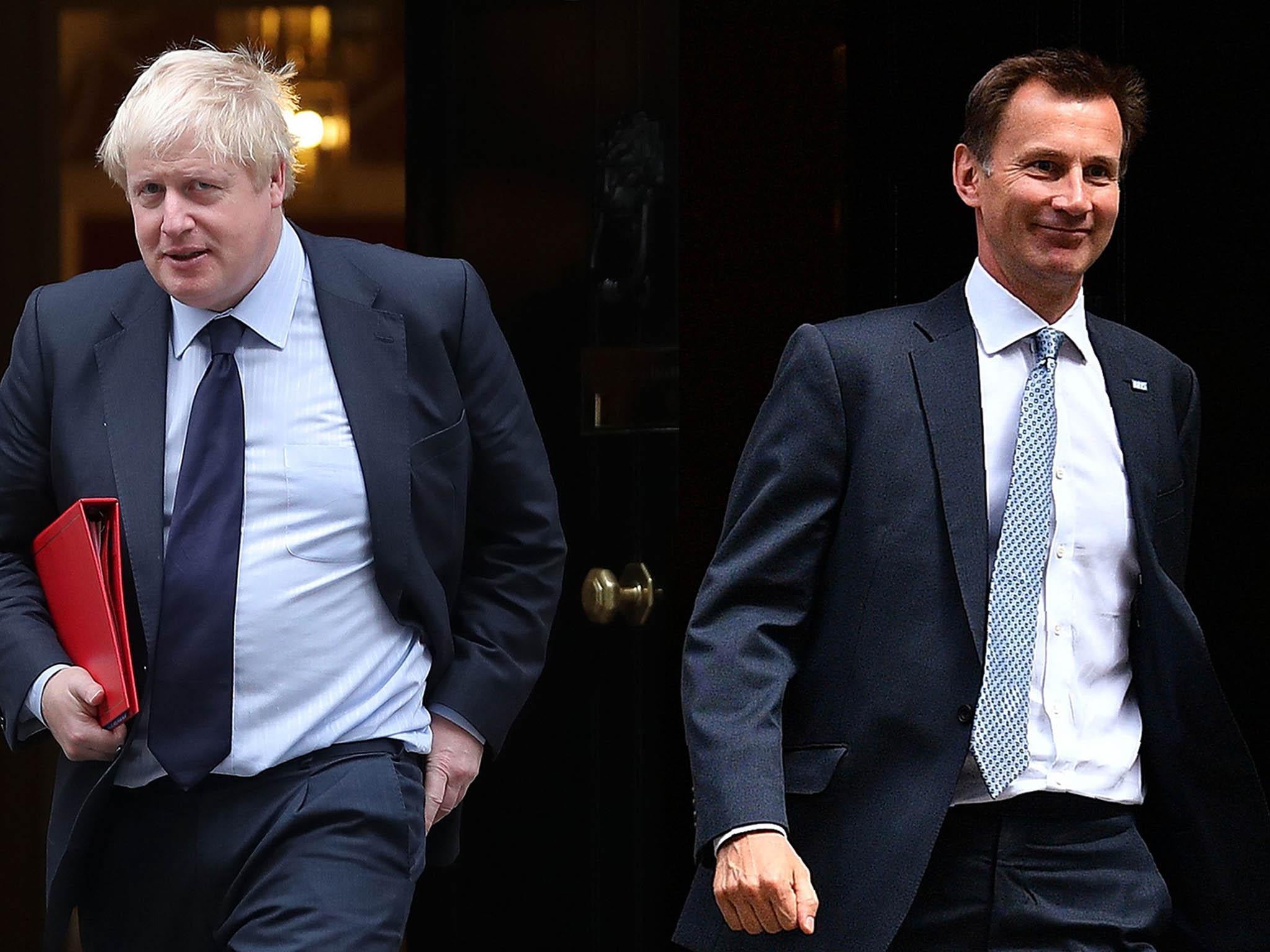What have Johnson and Hunt promised on taxes and spending and where would the money come from?
Chancellor’s £26.6bn ‘fiscal headroom’ available only if there is a Brexit deal and, even then, only for a year

Tax and spending pledges from Boris Johnson and Jeremy Hunt have been coming thick and fast as they vie for the attention of the Tory membership, who will anoint one of them as Britain’s next prime minister in three weeks’ time.
However, while they have been quick to announce headline-grabbing reforms, they have been rather less forthcoming on how the cash will be found to fund them once they are installed in Downing Street.
Johnson, the frontrunner to replace Theresa May, was first out of the blocks with a promise to raise the threshold at which the higher rate of income tax kicks in from £50,000 to £80,000 – a move widely criticised as handing more money to the better-off.
He has responded to the criticism by pointing out he would also like to take more people out of paying national insurance contributions, by lifting the level of earnings at which they become payable.
The Institute for Fiscal Studies (IFS) has calculated that together the two policies would cost at least £12bn a year, depending on as-yet-unspecified details of the national insurance plan.
On spending, Johnson has pledged an extra £4.6bn per year for schools, as well as more money for police, transport and ultra-fast broadband.
Not to be outdone, Hunt has promised to cut the main rate of corporation tax to 12.5 per cent, raise the NI contributions threshold and boost defence spending, among other plans. The IFS says the first two policies would cost at least £16bn a year, and the third would require the government to find an extra £15bn a year by 2023-24.
And on Monday Hunt promised to set up a £6bn fund for the fishing and farming sectors, as part of a “no-deal relief programme”.
So where will all the money come from?
Johnson explicitly pointed to the “fiscal headroom” of £26.6bn in the 2020-21 fiscal year, announced by the chancellor, Philip Hammond, in his Spring Statement.
However, as Paul Johnson of the IFS has explained on Twitter, that is not a pot of cash waiting to be spent. The sum is the difference between Britain’s forecast borrowing needs and the cap on debt that Hammond has set for next fiscal year, meaning the government can borrow an extra £26.6bn that year and still stay under the self-imposed limit.
The Office for Budget Responsibility has forecast that the structural budget deficit, which excludes the effect of the economic cycle, will fall to 0.8 per cent of GDP in 2020-21. The watchdog estimates that the gap is already below Hammond’s 2 per cent ceiling.
Secondly, the “headroom” is valid only for one year whereas tax cuts and additional spending will need to be funded permanently.
But most importantly, if Britain crashes out of the EU, the extra borrowing will not be available to fund Johnson’s – or Hunt’s – pledges, as Hammond pointed out on Monday. “It will all be needed to plug the hole a no-deal Brexit will make in the public finances,” he tweeted.
Both contenders for the top job have said they are willing to leave without a deal.
Whether there is a Brexit deal or not, slashing taxes and ramping up spending would inevitably require more borrowing. That would be a huge departure from the mantra of austerity in force since 2010. It would also raise the question of why austerity was pursued in the first place, at a great personal and political cost, if a bloated budget deficit is not a problem after all.
Join our commenting forum
Join thought-provoking conversations, follow other Independent readers and see their replies
Comments